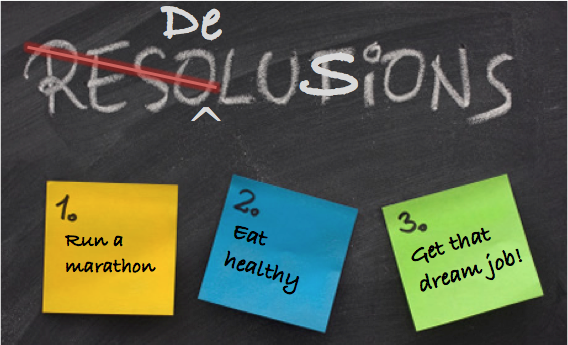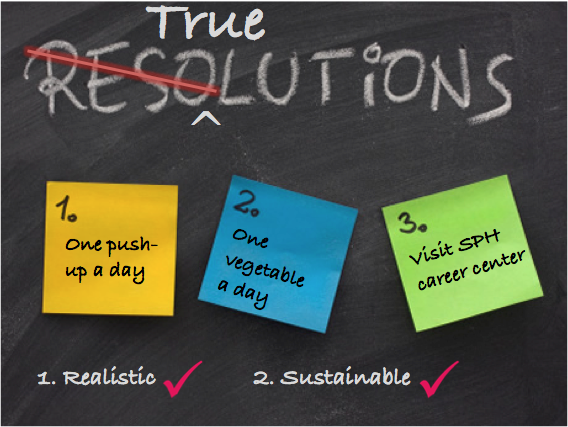What New Year Resolution did you make this year? Was it big and glamorous? Will you be running a marathon, going to the gym 5 days a week for 2 hours a day, earning straight A’s, or accepting your dream job?
How likely do you think these will be achieved?
Wyatt Beckman, a first year Master of Public Health student studying health behavior and nutrition, has little faith. Not because they are impossible or that the idea of resolutions is flawed, but because these resolutions lack a plan.
 I interviewed Wyatt for this blog because he brilliantly reflects on behavior—what makes us do what we do. As a high school athlete, he was concerned about his nutrition and thought about integrating dietetics into a career as a physician. However, he found a passion in public health, determining factors that affect the behavior of communities. He believes changing people’s behaviors is one of the most important things we can do to impact health.
I interviewed Wyatt for this blog because he brilliantly reflects on behavior—what makes us do what we do. As a high school athlete, he was concerned about his nutrition and thought about integrating dietetics into a career as a physician. However, he found a passion in public health, determining factors that affect the behavior of communities. He believes changing people’s behaviors is one of the most important things we can do to impact health.
His take on new years resolutions were quite simple yet profound. When making a new year resolution, he says we need to ask two questions: 1) is this realistic? and 2) is this sustainable?
Realistic
A goal that is mentally, physically, and timely reasonable. So many new years resolutions fail because we try to go from 0-100 at the strike of the clock. Can we expect to go to the gym for 2 hours everyday if we currently do no physical activity? Even if your body could handle the stress, we must also consider our time constraints. If we add an activity to our schedule, we are limiting time for something else, whether bad or good.
Sustainable
A goal that is able to be maintained longer than 2 months and ultimately becomes a lifestyle. Let’s not sugar coat this, In January the gym is packed—classes full, more people than equipment, and not enough lockers—but by mid-February the surge has resolved. You can probably guess why. People have burned out or they become busy with other commitments.
Wyatt suggests starting small. He refers to mini habits® —behaviors that are so easy you are guaranteed to succeed (e.g. one push-up a day). With success comes increased self-confidence and motivation to intentionally or even unintentionally push further the next day. Wyatt says, complete the small goals and you will be shocked at the impact over time.
Wyatt also encourages us to not make one-time goals because there is no success until you complete the task (e.g. run a marathon). Instead, we should focus on consistency. Rather than the resolution being run a marathon, it should be follow a training plan and run 3-4 times a week. Wyatt believes, “true results and true impact come from showing up everyday”.
These tips for New Years resolutions are not just for physical health, but can be applied to academic achievements and career building too. For example, if you want all A’s, consider realistic and sustainable resolutions that may lead to that amazing outcome. You could start your homework the day it is assigned, start studying for your tests one week in advance, set up a weekly appointment at the tutoring center, or even just go to the library three times a week. These are more manageable goals. They are realistic. They are sustainable.

Whatever your New Year resolutions may be, Wyatt Beckman says, “don’t stress, if you feel worse than before, then you are trying to do too much”. Enjoy the journey. The goal is to increase positive habits that will last a lifetime—not just through January.
Oh and before I forget, if you want that dream job, make your first New Years resolution to visit the career center! We can be found in the lower level of SPH or you can request an appointment with a career coach. We can help you finalize your resume, apply to internships, and practice for the interview. All little goals that will elevate you to success!

I TRI for Longevity so one day WE can change the World! -Mackenzie Jones



